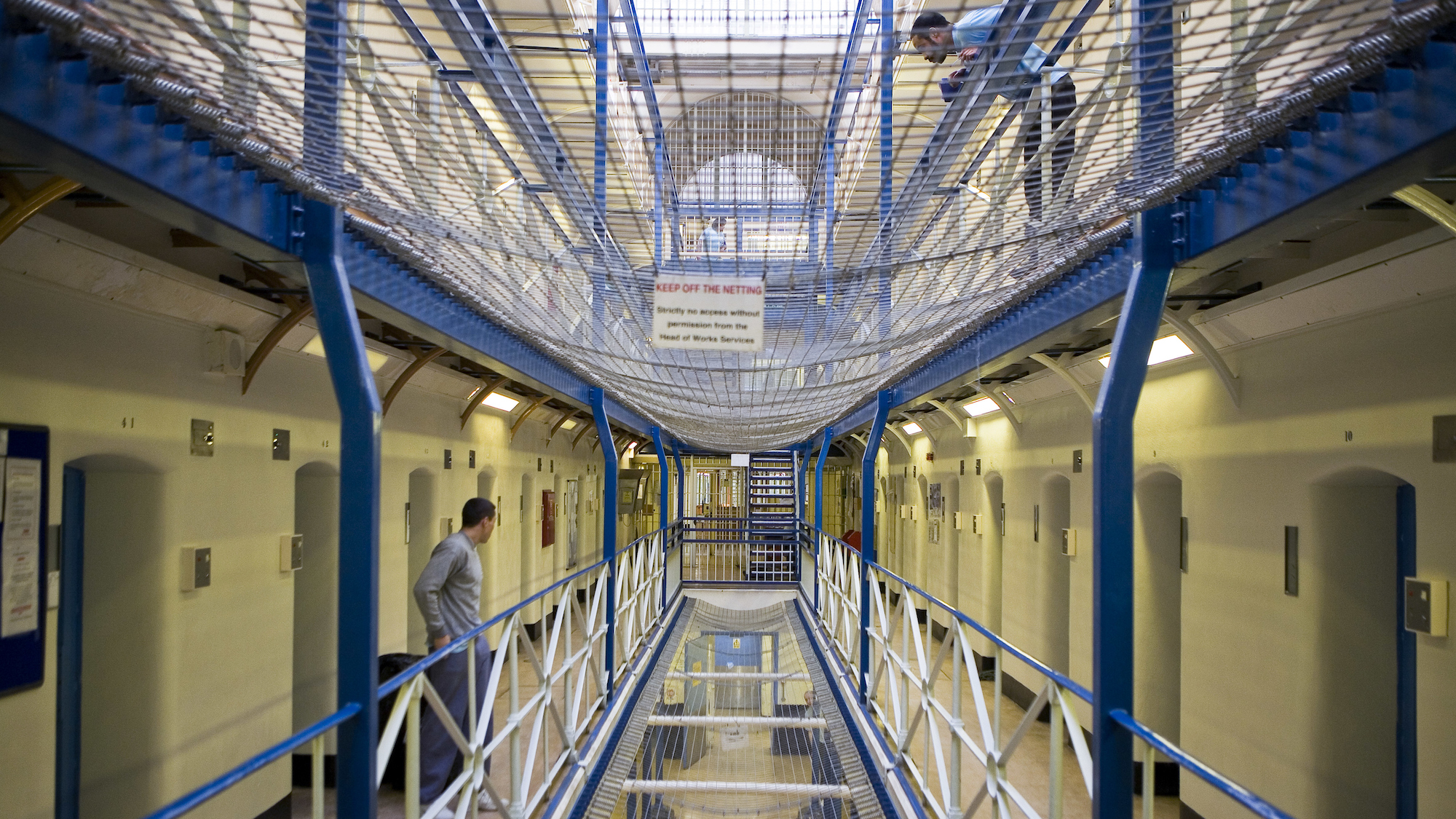'National scandal': prison early-release scheme gets earlier and earlier
Government says 'short-term' extension is necessary to help ease pressure on prisons

A free daily email with the biggest news stories of the day – and the best features from TheWeek.com
You are now subscribed
Your newsletter sign-up was successful
The government's decision to extend an emergency early-release scheme in prisons to alleviate overcrowding has been described as a "national scandal".
Until just a couple of months ago, prisoners could be released up to 18 days before their release date under the end-of-custody supervised licence (ECSL) scheme. It has since been increased to try to ease the pressure on prisons, and that will now be extended to 70 days to "create more space", said The Times.
The move has been roundly criticised, with one source inside the probation service telling Sky News that the scheme was "already not delivering" and it would now create an "additional workload" for a service already under huge pressure. Its quiet rollout has been a "cover-up" by the Conservatives, who are perpetrating a "national scandal", said Labour's shadow justice secretary Shabana Mahmood.
The Week
Escape your echo chamber. Get the facts behind the news, plus analysis from multiple perspectives.

Sign up for The Week's Free Newsletters
From our morning news briefing to a weekly Good News Newsletter, get the best of The Week delivered directly to your inbox.
From our morning news briefing to a weekly Good News Newsletter, get the best of The Week delivered directly to your inbox.
The government, however, insists that the move is a "temporary measure".
What is the scheme trying to achieve?
The original ECSL scheme was announced in October last year and targeted prisons "with fewer than 1,400 spaces for new inmates", said LBC. The extension of the early release window from 18 days to between 35 and 60 in March, and now 70 from the end of May, "suggests little progress has been made".
It is well known that prisons are over capacity, with "fewer than 250 places left available in men's prisons", said The Times, but the government has been accused of not being forthcoming with information about the scheme.
Who is eligible?
There are conditions regarding who can be released early under the scheme. All criminals serving more than four years are not eligible, while those serving any term for sexual offences or terrorism cannot be released early through the programme.
A free daily email with the biggest news stories of the day – and the best features from TheWeek.com
However, "violent offenders, including domestic abusers" as well as "burglars, thieves and fraudsters" serving a sentence of less than four years are all eligible, said The Times.
Why is it being criticised?
First, there is concern that the ECSL scheme is "being amended, at pace, and often with little warning", adding pressure to workers in the probation service, said Sky News.
That has led to criticism that it is ultimately "unsafe", as offenders are being released at such short notice that appropriate accommodation and deterrents like location tags are not being found or fitted in time.
Additionally, there are concerns about the type of offenders being released, with particular worry over "domestic abuse and stalk perpetrators". The UK's domestic abuse commissioner, Nicole Jacobs, has called for an "exemption" of those perpetrators from the scheme, arguing that their early release puts "victims at risk".
When will the scheme end?
The Ministry of Justice has yet to reveal how many prisoners have been released under the scheme since it was introduced but says all former prisoners are "under strict supervision" and that the scheme remains a tactic to relieve "short-term pressures on prisons", said The Times.
But there is no defined deadline, leaving workers in the prison system worried it will continue indefinitely. While the prison service remains under pressure, "broader reform is necessary" to effectively reduce the numbers of inmates, said Sky News.
Richard Windsor is a freelance writer for The Week Digital. He began his journalism career writing about politics and sport while studying at the University of Southampton. He then worked across various football publications before specialising in cycling for almost nine years, covering major races including the Tour de France and interviewing some of the sport’s top riders. He led Cycling Weekly’s digital platforms as editor for seven of those years, helping to transform the publication into the UK’s largest cycling website. He now works as a freelance writer, editor and consultant.